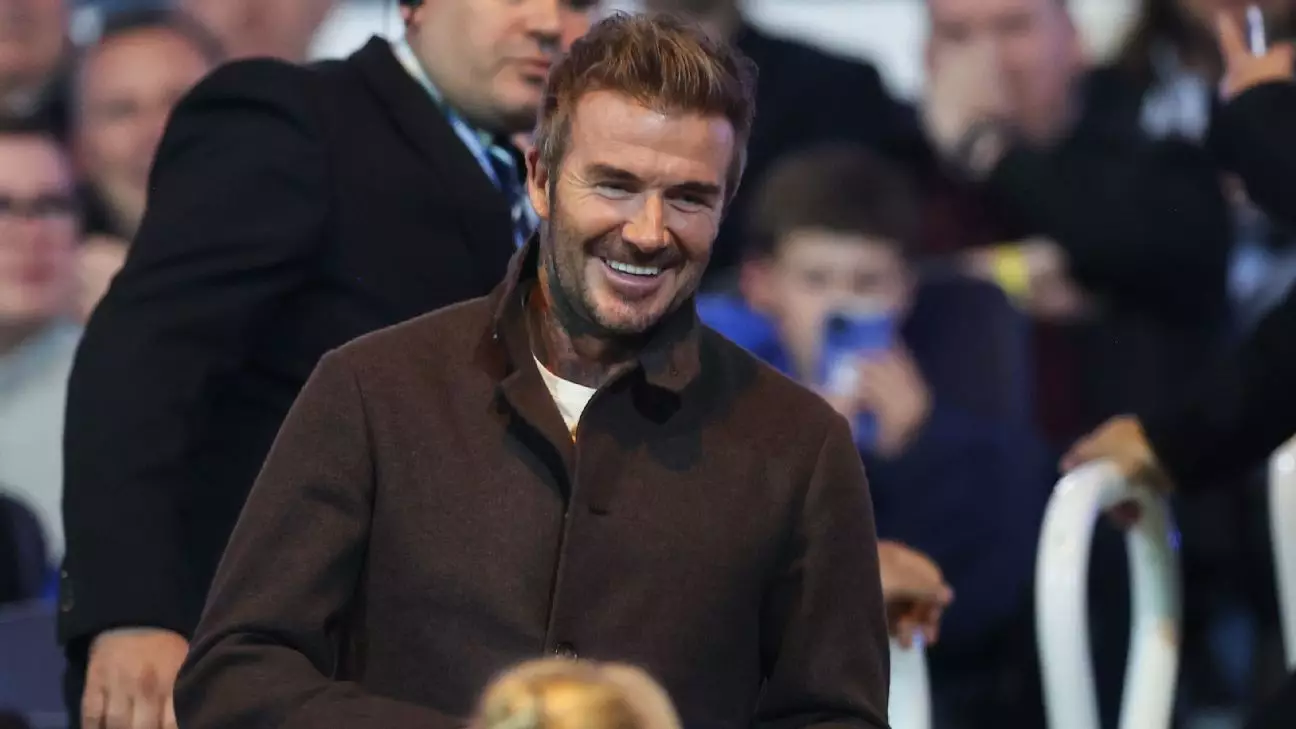In the world of football, few names evoke as much reverence as David Beckham, a man who not only dazzled on the pitch but also remains a passionate advocate for his former club, Manchester United. Beckham’s insightful reflections on the club’s current situation, particularly regarding the minority ownership of Sir Jim Ratcliffe, shed light on the necessary transformations that need to occur for United to reclaim its former glory. Speaking candidly on Rio Ferdinand’s podcast, Beckham emphasized that Manchester United has reached a critical juncture where change is no longer optional but essential.
The club has spent nearly a decade in a development limbo since Sir Alex Ferguson bid farewell. The inability to secure the Premier League title since 2013 has led to mounting frustration and disappointment among fans, culminating in an abysmal eighth-place finish last season. Beckham’s acknowledgment of these challenges signals his deep understanding of both the club’s rich history and its current predicament.
Beckham’s comments regarding Ratcliffe illustrate a fundamental aspect of football ownership: the importance of nurturing a genuine connection with the fan base. He describes Ratcliffe as someone who not only possesses business acumen but also embodies a passion for Manchester United that resonates with supporters. By emphasizing that fans have lost faith in previous leadership, Beckham highlights a broader, recurring theme in football: the alienation of supporters from those at the helm.
In today’s game, where commercial interests often overshadow the sport’s emotional essence, Beckham’s view serves as a poignant reminder that football clubs are more than just businesses; they are communities grounded in tradition and shared experiences. The emphasis on the need for a fresh perspective and a leadership that genuinely cares about the club’s heritage may go beyond mere sentiment; it represents a crucial requirement for any successful restructuring.
Despite a fervent desire among fans for immediate results, Beckham prudently notes that significant transformations take time. His perspective is grounded in a pragmatic understanding of the complexities associated with reshaping a club’s operational framework. As Manchester United endeavours to regain its status among elite clubs, it’s imperative to adopt a strategic approach. Beckham’s acknowledgment of the need for patience serves as an important counterbalance to the instant gratification culture that often pervades modern football.
This gradual approach to change is echoed in other successful franchises, such as Beckham’s own Inter Miami. While Manchester United grapples with its identity, Inter Miami has experienced a swift ascent, thanks in large part to astute decisions regarding player acquisitions and overall management. Beckham’s leadership in Miami can serve as a model for United’s potential path forward, emphasizing the critical nature of assembling a cohesive team rather than merely amassing star power.
Beckham’s reflections extend to the lessons learned from Sir Alex Ferguson, a legendary figure known for his ability to recognize what truly constituted success on the field. The notion of bringing in “the right players” rather than simply the most recognizable names highlights a significant philosophy that can benefit Manchester United as they navigate this challenging phase. Beckham’s insight speaks not only to player selection but also to fostering a culture of teamwork and commitment—elements crucial for long-term success in any sporting enterprise.
As United stands at a crossroads, the club must prioritize thoughtful planning and recruitment that aligns with the ethos cultivated by Ferguson during his tenure. The road to recovery may be fraught with complications and setbacks, but the experiences of Beckham and the insights from historic figures in the club signal what could be achieved through dedication and vision.
Ultimately, David Beckham’s insights shine a hopeful light on the future of Manchester United. With Sir Jim Ratcliffe’s minority ownership, there exists an opportunity to initiate meaningful change that resonates with the fervent fan base longing for a return to the club’s storied past. While challenges loom, embracing patience, transparency, and a connection to the fans could become the cornerstones of a transformative journey. The whispers of a revitalised Manchester United are on the horizon, and with steadfast leadership and unwavering support, the club may just find its way back to the summit of English football.

